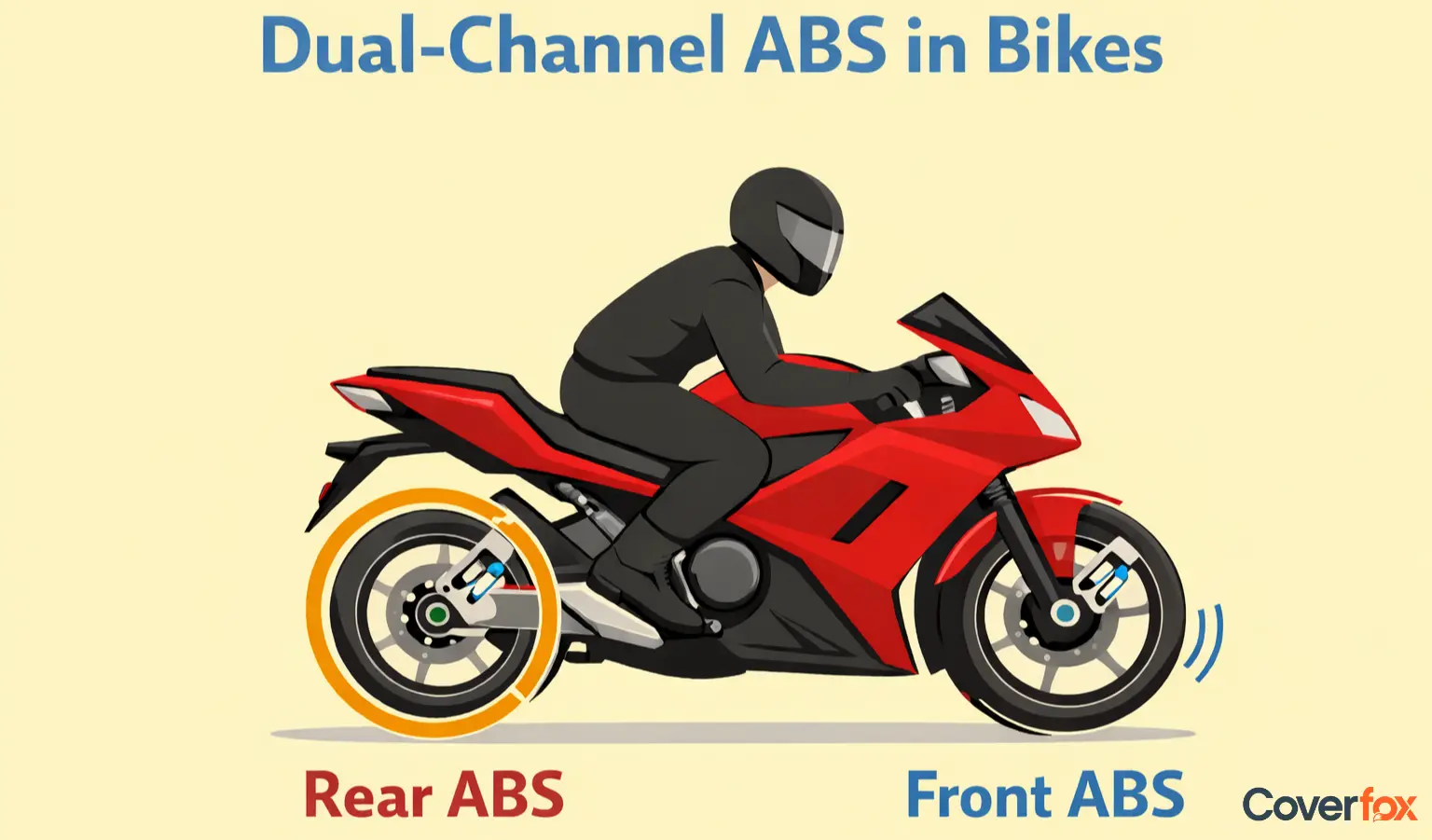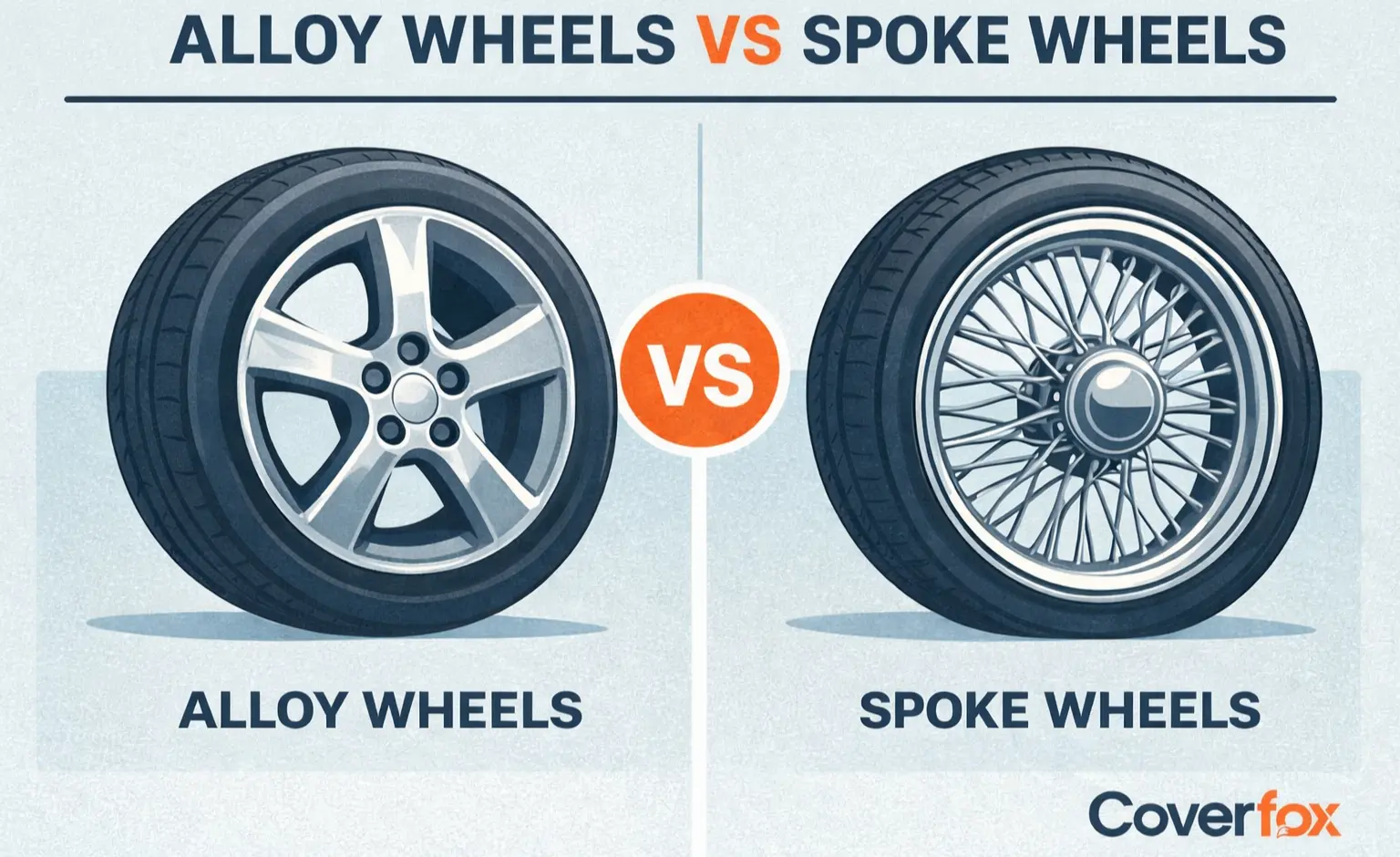Two wheeler braking systems have evolved from simple mechanical brakes to advanced hydraulic and linked systems for enhanced safety.
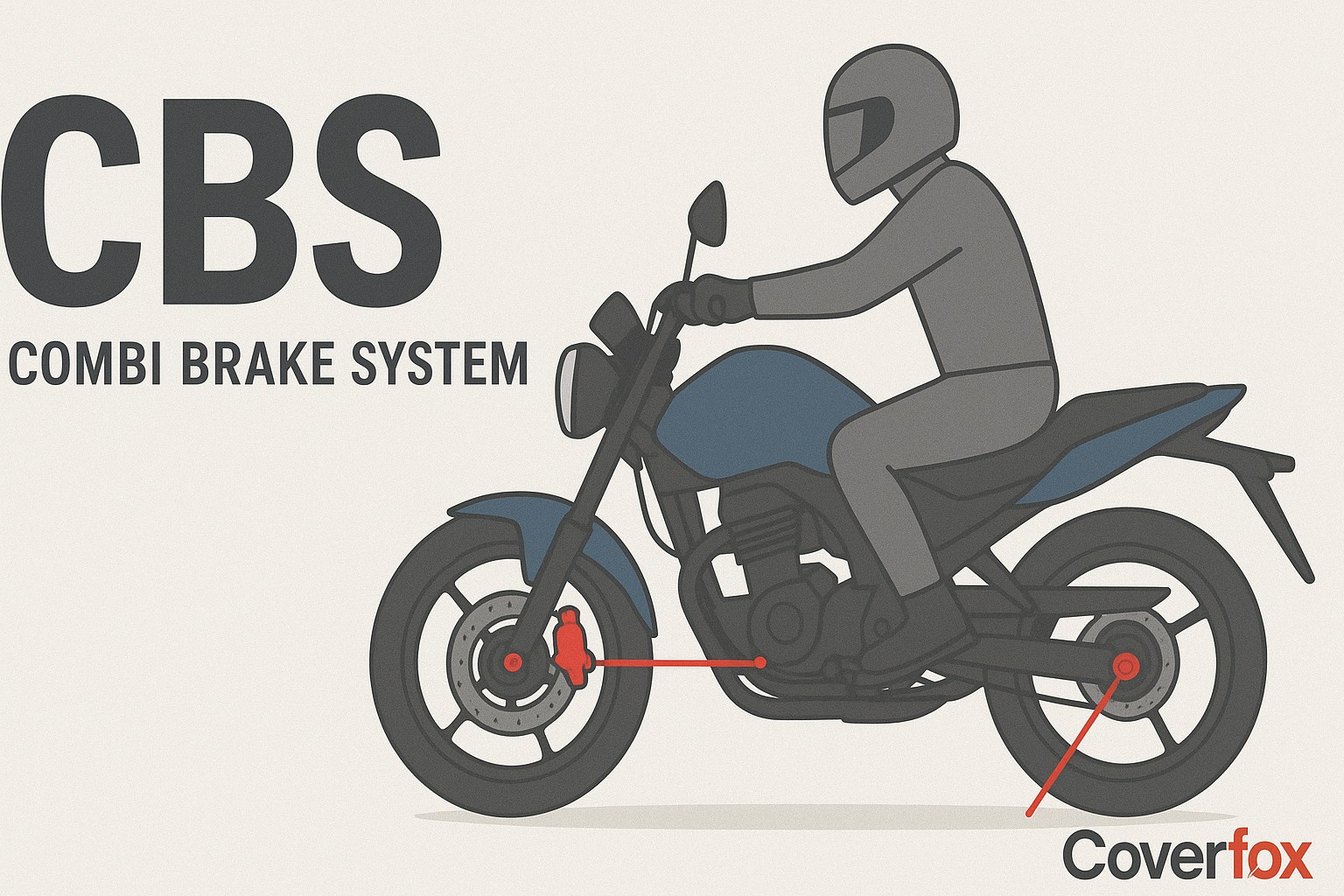
The Combi Brake System (CBS) was introduced to improve braking balance, reduce stopping distance, and provide safer handling, especially for novice riders, while meeting regulatory safety standards. CBS has been widely adopted in India following mandatory regulations amended in April 2019 for bikes under 125cc, and globally, it is used in various commuter and entry-level motorcycles to enhance rider safety.
Combi Brake System in Bike - Rules Updated
From January 1, 2026, ABS will be mandatory for all new two-wheelers (motorcycles, scooters) in India, irrespective of engine capacity. The draft amendment to the Central Motor Vehicles Rules, 1989 requires that all two-wheelers of category L2 be fitted with ABS conforming to Indian Standard IS 14664:2010. Currently, many two-wheelers below 125cc are using CBS (or ABS/CBS combination). Under the new rule, most of these entry-level/low displacement bikes will need to transition to ABS.
What is the Combi Brake System (CBS)?
The Combi Brake System (CBS) is a braking technology that links the front and rear brakes, so applying one brake activates both simultaneously for more balanced and stable stopping. Unlike conventional braking, where front and rear brakes must be applied separately, CBS ensures even weight distribution and reduced skidding, enhancing safety. It is particularly important for commuter bikes and scooters, as it provides novice riders with improved control and confidence during everyday riding.
How Does a Combi Brake System Work?
The CBS takes the traditional braking system (of pressing 2 brakes for each wheel) to a singular system that applies both brakes simultaneously. Here’s how it works:
1. Brake Application
When the rider presses either the front or rear brake lever/pedal, the CBS mechanism is activated.
2. Hydraulic/Mechanical Linkage
The system transfers part of the braking force to the opposite brake via hydraulic lines or mechanical linkages.
3. Balanced Braking
Both front and rear brakes engage simultaneously, providing smoother and more stable stopping power.
4. Reduced Skidding
By evenly distributing braking force, CBS minimises the risk of wheel lock-up and skidding.
Advantages of Combi Brake System
The advantages of having a CBS in your bike are:
Enhanced Safety & Stability
Shorter Braking Distance
Beginner-Friendly
Works on All Road Types
Cost-Effective vs ABS
CBS distributes braking force evenly between the front and rear wheels, reducing the risk of skidding and providing a more stable ride during sudden stops.
By engaging both brakes simultaneously, CBS helps bikes stop more efficiently, reducing the distance needed to come to a halt.
CBS simplifies braking for novice riders, eliminating the need to perfectly balance front and rear brake usage, which can prevent accidents.
Whether on wet, slippery, or uneven surfaces, CBS ensures consistent braking performance and better control across different road conditions.
While ABS provides advanced anti-lock braking, CBS offers a more affordable solution that still significantly improves safety for everyday commuting without the higher cost.
Disadvantages of Combi Brake System
CBS has certain limitations that riders should be aware of. CBS is designed primarily for everyday riding and may not meet the demands of high-performance or specialised riding conditions.
Not for High-Performance Bikes
Limited Off-Road Use
Restricts Independent Braking Control
Less Effective than ABS in Extreme Conditions
CBS is tailored for commuter bikes and scooters; it does not provide the advanced braking capabilities required for sports or high-speed motorcycles.
On rough or uneven terrains, CBS may not offer optimal braking performance compared to independent braking systems, making it less suitable for off-road riding.
Since CBS links the front and rear brakes, riders have less flexibility to apply brakes separately, which can be a disadvantage in certain manoeuvres or skill-based riding situations.
In critical scenarios such as sudden high-speed braking or slippery surfaces, CBS is less effective than Anti-lock Braking Systems (ABS), which prevent wheel lock-up and maintain better control.
Key Differences CBS vs ABS
While both Combi Brake System (CBS) and Anti-lock Braking System (ABS) enhance safety, they function differently and serve distinct purposes in motorcycles and scooters.
| Feature | Combi Brake System (CBS) | Anti-lock Braking System (ABS) |
|---|---|---|
| Function | Links front and rear brakes for balanced braking | Prevents wheel lock-up during sudden or hard braking |
| Primary Purpose | Improves stability and safety for everyday riding | Maintains control and traction during emergency braking |
| Best Suited For | Commuter bikes and scooters | All types of motorcycles, especially high-performance and heavy bikes |
| Performance on Slippery Surfaces | Limited effectiveness | Highly effective; reduces skidding risk |
| Braking Control | Reduces independent braking flexibility | Allows full rider control while preventing lock-up |
| Cost | More affordable | Generally more expensive than CBS |
Maintenance & Care Tips for CBS
- Regularly check brake fluid levels and top up as needed.
- Inspect brake pads and discs for wear and replace promptly.
- Ensure hydraulic lines or mechanical linkages are free from leaks or damage.
- Avoid excessive force on levers to prevent system strain.
- Get periodic professional servicing to maintain optimal braking performance.
- Keep brakes clean and free from dust, mud, and debris.
Conclusion
CBS has a superior braking system than traditional brakes – it ensures that a novice has an easier time riding a bike. It also reduces the stopping time from a traditional brake, whilst maintaining the stability of the bike. Although CBS may be discontinued in the future as new technologies like ABS are taking over, it has remained a benchmark in the history of braking systems in bikes. As CBS helps securely slow down and stop your bike, two wheeler insurance ensures the financial safety of you and your bike if it comes under an accident or suffers any damage. So, get insured today!
Read More:
Frequently Asked Questions on CBS
Is CBS compulsory in India?
Yes, as per government regulations, CBS is mandatory for all two-wheelers with engine capacity up to 125cc to enhance rider safety.
Does CBS increase maintenance cost?
No, CBS does not significantly raise maintenance costs; it functions using simple mechanical or hydraulic linkages that are easy to service.
Can CBS be disabled?
No, CBS is a built-in safety feature and cannot be manually disabled without compromising the braking system’s balance and safety.
Is CBS effective in rainy weather?
Yes, CBS improves stability even on wet roads by distributing braking force evenly across both wheels, reducing skidding risks.
Which is the best braking system in a bike?
For high-performance or premium bikes, ABS is preferred for its advanced safety; however, CBS is ideal for commuter and entry-level bikes.
Which is better, combi brake or disc brake?
CBS and disc brakes serve different purposes - CBS ensures balanced braking, while disc brakes provide stronger stopping power; many modern bikes combine both for optimal safety.
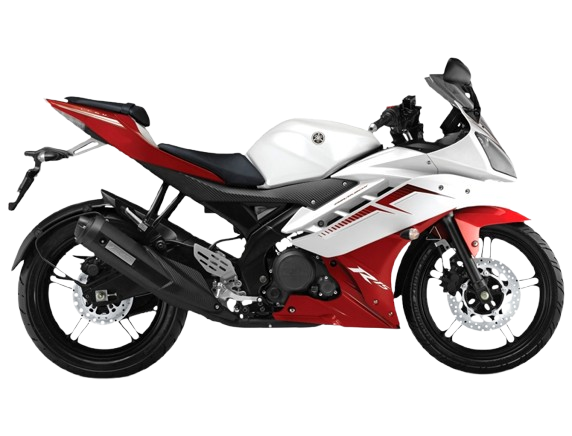
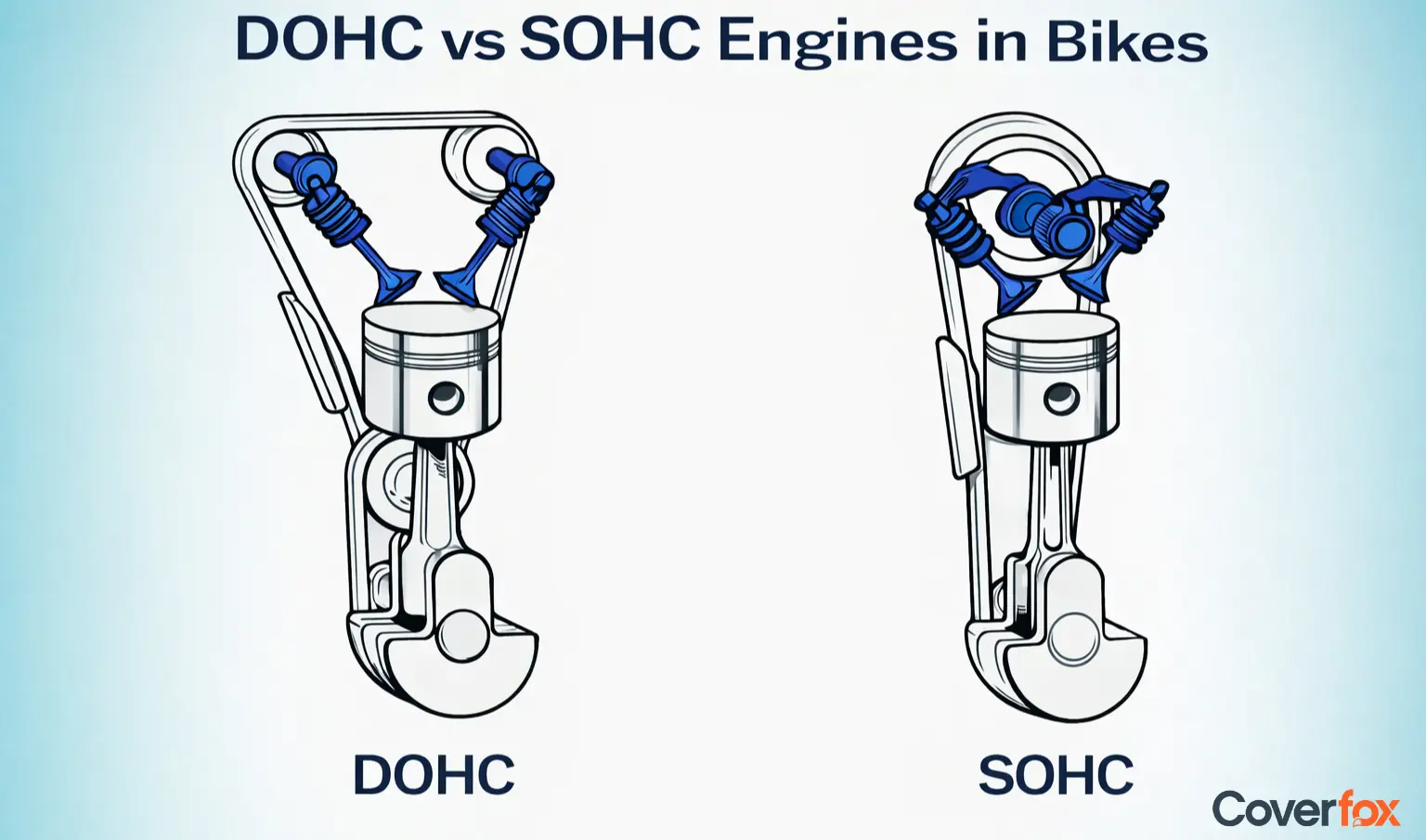
.webp)
